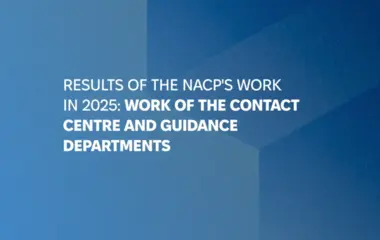The Commercial Court of Kyiv City has opened proceedings in a case brought by the National Agency on Corruption Prevention (NACP) to invalidate agreements between a business company and the Main Department of the National Police in Kyiv. The first court hearing is scheduled for 12:00 p.m. on January 30, 2024.
The NACP, as a result of monitoring the implementation of legislative acts on the prevention and settlement of conflicts of interest, found signs of a crime under Part 5 of Article 191 of the Criminal Code of Ukraine: embezzlement of other people's property by abuse of office, committed on an especially large scale.
Thus, during the monitoring, it was found that the Main Department of the National Police in Kyiv had arranged a special site for temporary detention and storage of vehicles on a land plot leased from a business company.
It turned out that this company was not the owner of the land but also leased the land from the Kyiv City Council. However, instead of entering into land sublease agreements, the company and the Main Department of the National Police in Kyiv signed agreements on the purchase of real estate lease services for public funds. The result of such actions was the creation of conditions for overstating the cost of using the land plot.
It should be noted that according to the law, the rent under a sublease agreement cannot be higher than the rent specified in the main lease agreement.
As a result of such actions, the officials of the Main Department of the National Police in Kyiv transferred budgetary funds to the company for the use of a part of the land plot of 3.72 hectares in an amount significantly exceeding the rent set by the Kyiv City Council for the company for the use of a plot with a total area of more than 6 hectares.
The NACP approved a substantiated conclusion on the detection of signs of a corruption offense, based on the results of which the State Bureau of Investigation initiated a pre-trial investigation.
The NACP filed a lawsuit with the court to invalidate the above agreements, given that they were concluded as a result of a possible corruption offense and given the contradiction of the content of these agreements with a number of provisions of special legislation.









